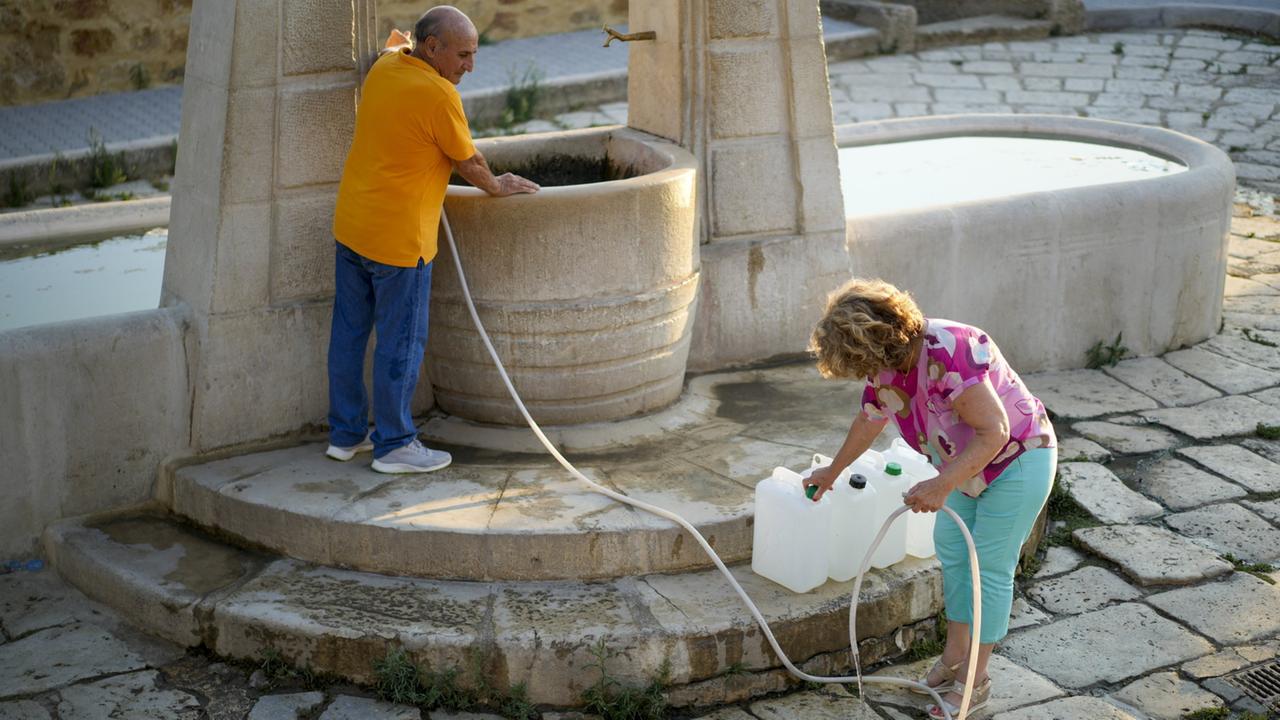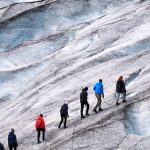report
Sicily is going through a period of extreme drought: farmers are bringing their livestock for emergency slaughter, residents are queuing with buckets in front of public fountains. The emergency has primarily human causes.
Luca Cammarata drives his goats to the milking parlor. The farmer has about 300 animals – still. He had 26 goats taken to the slaughterhouse last week. Water is rationed, and he has to reduce his herd because there is not enough for everyone.
The milk production of his animals is only half as high as usual, says Cammarata: “But the problem is not production. The problem is keeping the animals alive.”
Hot Sahara climate
The farmers in Sicily actually know how to get livestock through a hot summer: Camarata has built catchment basins for rainwater. But all the basins are bone dry. That has never happened before, he says – there hasn't been a long period of rain for a year and a half.
The Italian climate research institute CNR has calculated that more than 70 percent of Sicily is currently experiencing extreme drought. The reason is climate change, says Antonello Pasini.
In the past, the Azores high pressure system was a kind of protection for Sicily – from the hot air from the Sahara. That has changed: today, the much hotter Sahara climate is increasingly determining for Sicily.
“We are seeing what is coming in the next few decades a little earlier than expected,” says Pasini.
Luca Cammarata points to his herd standing at the bottom of a dried-up lake. “A disaster,” he says.
“Water is a basic good”
But the heat and the lack of rain are only part of the problem. According to official estimates, more than half of the collected water is lost due to dilapidated pipes.
In Agrigento, which is popular with tourists because of the famous “Valley of the Temples”, there are protests. Agrigento's tap water is strictly rationed. This has so far hardly been noticeable in hotels, as tourism should not suffer. But residents sometimes have no water for weeks.
Lake Fanaco, which supplies Agrigento with water, has become significantly smaller.
They are trying to hoard the water in tanks. Emanuela Fragapane has been out of water for two weeks. The 45-year-old, her husband and her son now live without running water, washing machine, dishwasher or shower. She carries every liter in canisters to her apartment on the fourth floor.
“I'm completely drenched in sweat now, can I take a shower? No!” she says. “I can let the sun dry me. Water is a basic good. It's a right, a dignity.”
Hotel pools in Sicily continue to be well-filled. Many islanders complain that wealthier areas are supplied with water more frequently.
“Let's hope the crisis helps”
Residents complain about the failure of politics and unequal treatment: in the acute crisis, richer districts are supplied more often by tanker trucks than poorer districts, they say. Many fear that the mafia has long been making a lot of money from the so-called blue gold, the water.
The Prefect of Agrigento, Filippo Romano, admits that the looming problem of water shortages has been underestimated: “The political cycle is often determined by acute urgency. This is a structural problem. Let us hope that this crisis will help us here.”
Goat farmer Luca Cammarata calls the situation “a disaster”. A third of Sicily's area could be affected by desertification by 2030. But he doesn't want to give up; he wants to dig another catchment basin for the next big rain – if it ever comes.
Rüdiger Kronthaler, ARD Rome, tagesschau, 07.08.2024 09:50 a.m.





